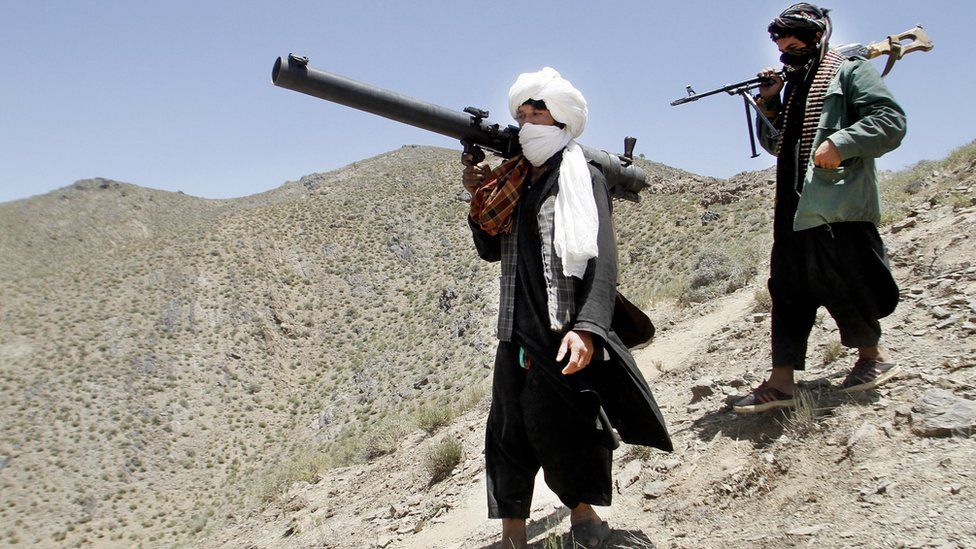Taliban leader urges Afghans to plant more trees
- Published

The leader of the Taliban in Afghanistan, Hibatullah Akhundzada, has urged Afghans to plant more trees.
In a statement, he called on civilians and fighters to "plant one or several fruit or non-fruit trees for the beautification of Earth and the benefit of almighty Allah's creations".
Afghanistan has a severe problem of deforestation. Trees are cut down for heating and illegal timber sales.
Statements from the Taliban on environmental issues are rare.
Akhundzada, who became leader of the Taliban last May, has a stronger reputation as a religious leader than a military chief.
Sunday's "special message", carried on official Taliban outlets, was in stark contrast to the more familiar fiery rhetoric against the Afghan government and its Nato coalition backers.
"Tree plantation plays an important role in environmental protection, economic development and beautification of earth," the Taliban leader said, in a report carried by the Afghan Taliban Voice of Jihad website.
"Planting trees and agriculture are considered actions which hold both worldly good and benefit as well as immense rewards in the hereafter."
A spokesman for Afghan President Ashraf Ghani, Shah Hussain Murtazawi, described the statement as an attempt to deceive public opinion and to distract from the Taliban's "crimes and destruction".
The Taliban is more usually associated with Afghanistan's illicit production of opium, which it taxes in areas under its control.
The group ruled most of Afghanistan from 1996 until it was toppled by a US-led coalition in 2001.
It has since been offered a role in government in return for ending their insurgency but its leaders have so far refused.
The presence of international troops in the country is believed to be the main stumbling block.
- Published12 August 2022
- Published24 October 2012
- Published26 May 2016